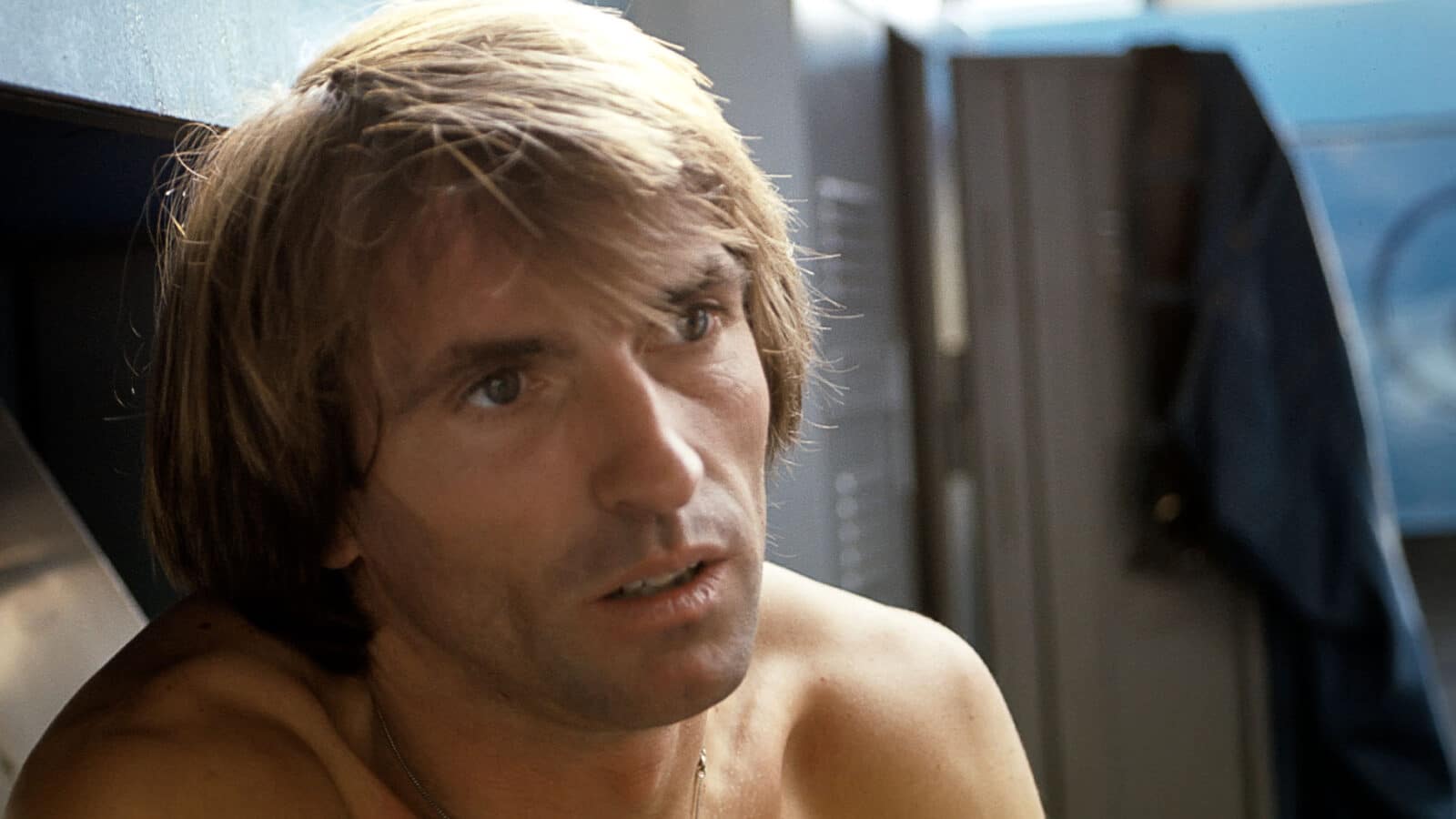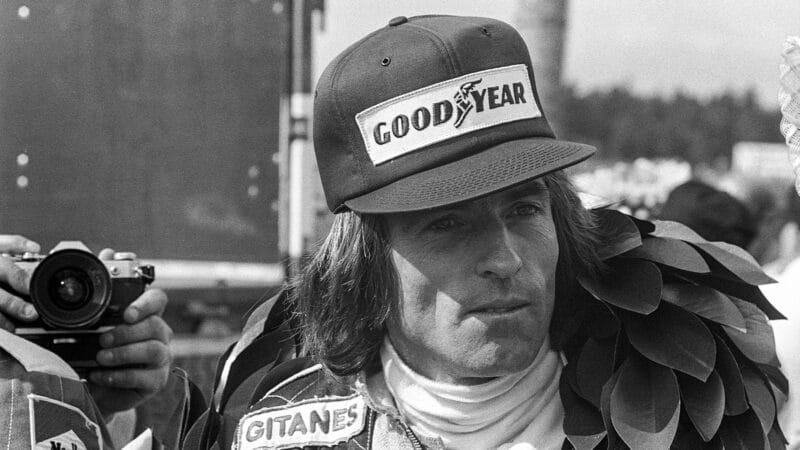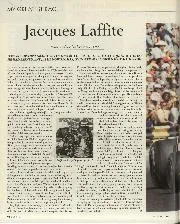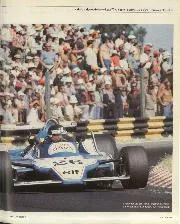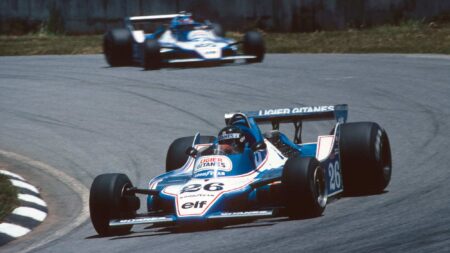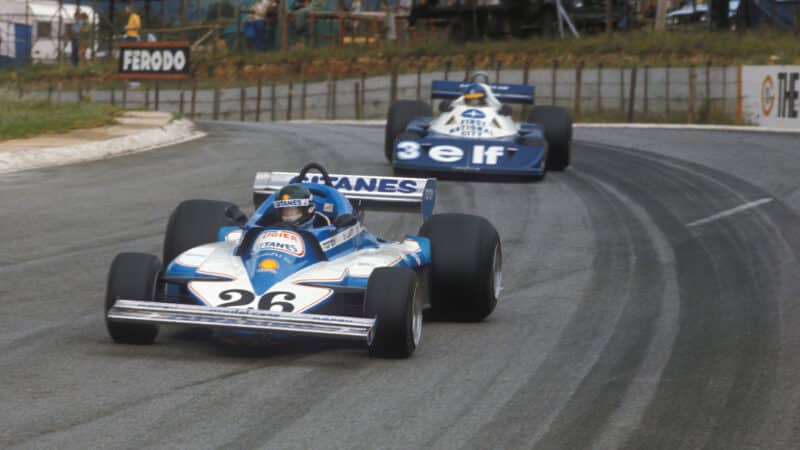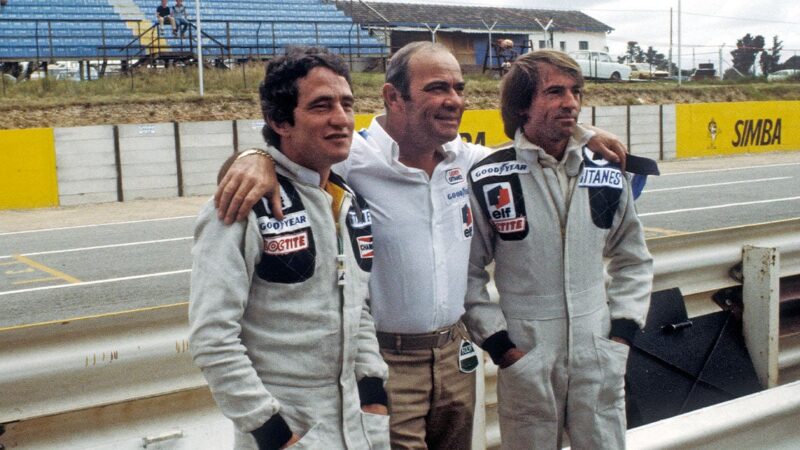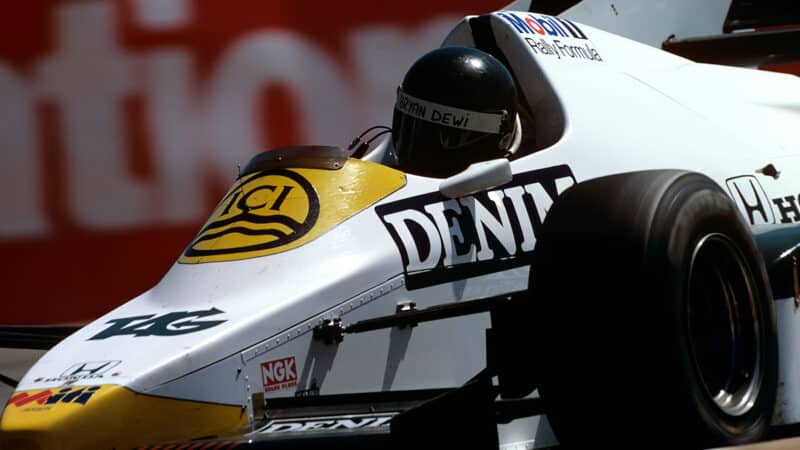Time after time Villeneuve skittered by at 160mph, a different sort of speed from anyone else, while we looked on, giggling nervously. Eventually his time was announced, and it was 11 seconds faster than Scheckter. Some made light of it, ascribing it to insanity. Laffite disagreed. “No, no, he’s different from the rest of us. On a separate level…”
Jacques himself had come to motor racing late, and was, by his own admission, a drifter until going to the Winfield Racing School in Magny-Cours in 1969, when he was already 25. “It was not my idea to go there, but a friend said he would pay if I wanted to try it, so I said OK. I was second in the championship there, then did Formula Renault for two years, then decided I would try to race for a living.
“I had never worked before that! I mean, I had worked in a garage in Paris for a bit, and I helped on Jean-Pierre Jabouille’s car, because he was my friend, but I never worked properly. I lived with my parents, and they gave me something to eat and somewhere to sleep. When I worked, I used the money to go skiing, go on holidays.”
In 1973 Laffite won the French F3 Championship, including the all important race at Monaco. Then in F2 he took the European Championship in 1975. Midway through the previous season, however, his talent had been noted by Frank Williams, and he made his F1 debut at the Nürburgring.
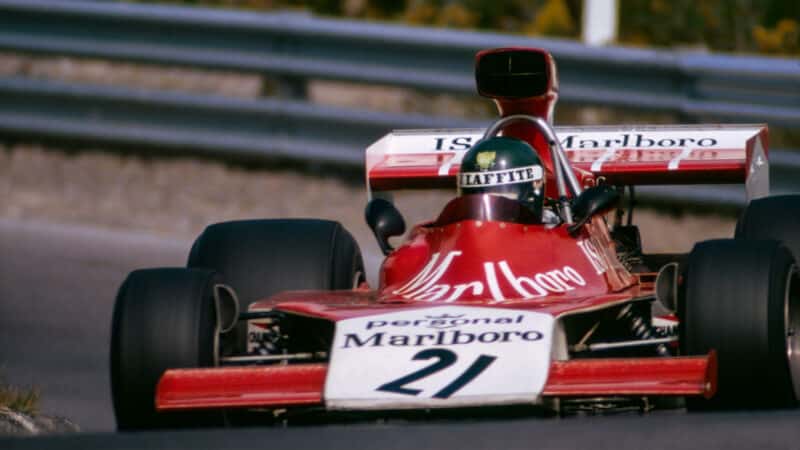
Laffite made his F1 debut with Williams – here he is at the 1974 Canadian GP
DPPI
Laffite remembers those days with great affection. “For sure it was hard — we did not have a good engine, a good chassis or good tyres! But actually it was good for me, because it taught me to fight naturally. A lot of drivers have it too easy on the way to F1; when they arrive there, there is no fight in them.
I loved my time with Frank, always thought he was a very good man. People used to say he was no good at running a team, but when he got money, he got success. I would have stayed with Frank for 1976 if the Ligier offer had not come up.”
